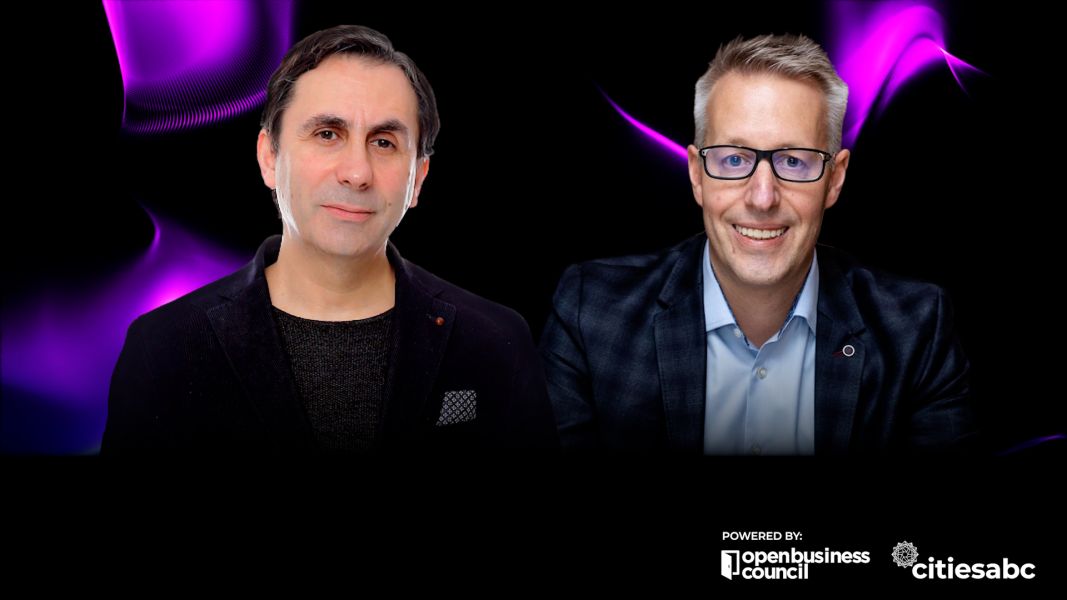As search algorithms become more sophisticated and user behavior evolves, SEO professionals find themselves at the intersection of human ingenuity and machine intelligence. Simon Schnieders, Founder of Blue Array, one of UK’s most popular SEO agencies, highlights the current state of the SEO industry in the recent episode of Dinis Guarda YouTube podcast. He delves into how AI is reshaping strategies, presenting new opportunities, and posing unique challenges for digital marketers.

The Search Engine Optimization (SEO) industry, with a projected market size of USD 122.11 billion by 2028, is rapidly undergoing a profound transformation, propelled by the advancements in artificial intelligence (AI) technologies.
Simon tells Dinis that disruptions are a constant phenomenon in the SEO industry, with latest innovation and technology-enabled tools and algorithms. With the advent of AI, the big players in the SEO industry, like Google and Microsoft, are focussing on the “search generative experiences”, owing to the inherent nature of relying on organic results.
Search algorithms with the power of AI
The search engines, like the one by Google, are foundationally built upon intricate algorithms designed to meticulously crawl and index webpages. These algorithms subsequently rank the pages according to their perceived relevance and authority. The integration of AI-powered algorithms into this framework significantly refines search results, thereby ensuring accuracy, personalisation, and efficiency that transcend traditional methods.
For instance, AI-driven algorithms, such as Google’s RankBrain, use machine learning to understand and predict user intent, providing more accurate and relevant search results. SEO specialists now need to adapt their strategies to align with the nuances of these dynamic algorithms, emphasizing user-centric content and context.
Simon also highlighted the rise of voice-activated devices and virtual assistants in the SEO markets. Optimization for voice search requires a different approach, focusing on conversational keywords and providing concise, informative responses.
AI powered content optimization and creation
“There are certain elements of AI that we can utilize and leverage to help us do our jobs better and assist us to improve our efficiencies”, shares Simon.
He explains that from chatbots to voice search, the SEO industry has constantly attuned to the ways AI is influencing how information is presented and consumed. Natural Language Processing (NLP) algorithms, for instance, analyse user queries and content, making it crucial for SEO professionals to produce high-quality, engaging, and contextually relevant content.
The automation capabilities of AI have streamlined routine SEO tasks, allowing professionals to focus on strategy and creativity. From keyword research to performance tracking, AI tools enable more efficient data analysis, helping SEO experts make informed decisions based on real-time insights.
Search generative experience
A search generative experience, Simon highlighted for Dinis, leverages advanced technologies such as artificial intelligence to not only provide results based on explicit queries but also to dynamically generate content suggestions and recommendations.
He explained that this approach transcends the traditional static search model by actively anticipating user preferences, refining search results in real-time, and fostering a more intuitive and personalized journey through digital information. “The search generative experience, actually a synergy between human intent and AI capabilities, offers users a more fluid, context-aware, and interactive exploration of the vast digital landscape”, he says.
However, Simon also cautioned about the potential for bias in AI algorithms, privacy concerns, and the need for transparent communication are areas. He clearly emphasised the importance of human-driven businesses:
“Agencies that focus on human intelligence are always going to do a lot better than agencies who are trying to producticize their offering and scale it in a way to reduce overhead. I don’t see any particular threat to core organic search. We are seeing Google do a better job of understanding what looks good on the web.
There are all kinds of subtleties and algorithms that play for different queries, but, nothing, I’d say, is going to fundamentally change the way we interact with search engines or search interact with us.”

Pallavi Singal is the Vice President of Content at ztudium, where she leads innovative content strategies and oversees the development of high-impact editorial initiatives. With a strong background in digital media and a passion for storytelling, Pallavi plays a pivotal role in scaling the content operations for ztudium’s platforms, including Businessabc, Citiesabc, and IntelligentHQ, Wisdomia.ai, MStores, and many others. Her expertise spans content creation, SEO, and digital marketing, driving engagement and growth across multiple channels. Pallavi’s work is characterised by a keen insight into emerging trends in business, technologies like AI, blockchain, metaverse and others, and society, making her a trusted voice in the industry.




























